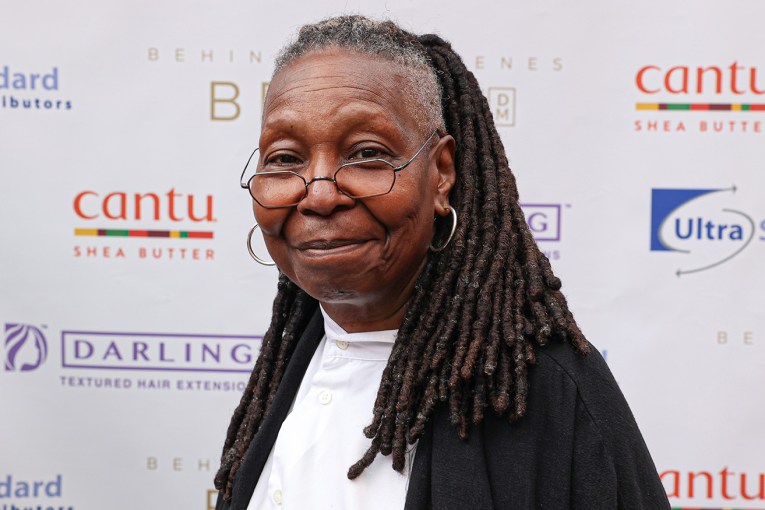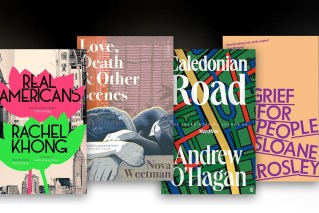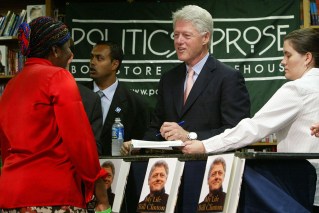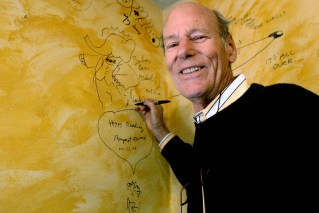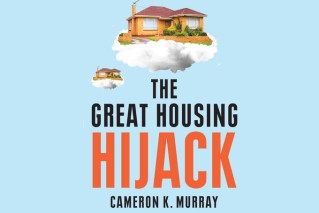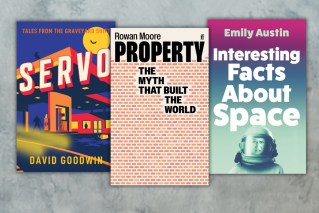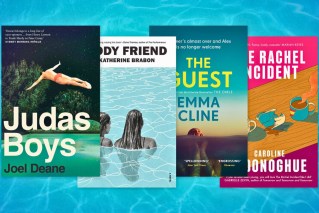What six avid readers will be reading on the beach this summer

These books will make sure you enjoy your summer on the beach. Photo: Getty
One of the best things about summer for the book-lovers among us is a beach towel by a strip of water … and time to lose yourself in another world. That might be a traditional beach read – typically a genre paperback with a propulsive plot – or an opportunity to catch up on the classics you never got around to during the year. Or, really, anything you like!
We asked six experts in reading and writing to share what they plan to read on the beach.
Love and Other Scores by Abra Pressler (and other Australian romantic comedies)
The book I’ll be taking to the beach this summer, just in time for the tennis, is one of Pan Macmillan’s latest offerings: Love and Other Scores by Abra Pressler. French tennis star Gabriel is looking for his first Grand Slam title – but what he doesn’t expect to find is a real romantic connection with Melbourne bartender Noah …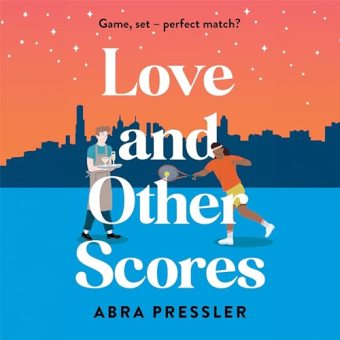
2023 has seen a significant investment in Australian romantic comedies from major publishers – which means that if you want something light and bright and sparkling to read at the beach, you’re in luck.
A non-exhaustive list:
• Penguin published Saman Shad’s The Matchmaker (a matchmaker/matchmakee romance set in Sydney’s Pakistani community) and Clare Fletcher’s Love Match (a queer sports romance perfect for anyone who fell in love with the Matildas).
• Pan Macmillan published Karina May’s Duck à l’Orange For Breakfast and Never Ever Forever (travel rom-coms which split time between Australia and Paris and Mumbai respectively).
• Harper Collins published Steph Vizard’s The Love Contract (what if pretending to date your neighbour was the solution to your childcare problems?).
• Simon & Schuster published Amy Hutton’s Sit, Stay, Love (the ultimate rom-com for dog people), my own Can I Steal You For A Second? (two contestants on a show like The Bachelor fall in love), and reissues of some of Anita Heiss’s iconic Indigenous rom-coms (Not Meeting Mr Right, Avoiding Mr Right, Manhattan Dreaming and Paris Dreaming).
– Jodi McAlister is a Senior Lecturer in Writing, Literature and Culture at Deakin University, and a romance writer and researcher.
Three Assassins by Kotaro Isaka
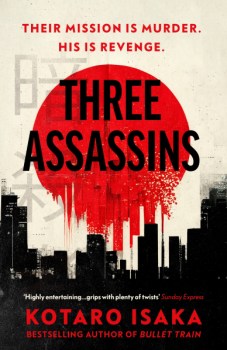 There are two perfect reading seasons in Melbourne – winter for literature and classics, and summer for distractions and catch-up reading. With winter receding (David Copperfield, followed by Demon Copperhead), I am looking to what kinds of books might fill my summer, so I’m reading a new-to-me crime/thriller writer, Kotaro Isaka.
There are two perfect reading seasons in Melbourne – winter for literature and classics, and summer for distractions and catch-up reading. With winter receding (David Copperfield, followed by Demon Copperhead), I am looking to what kinds of books might fill my summer, so I’m reading a new-to-me crime/thriller writer, Kotaro Isaka.
His 2022 novel, Three Assassins (Vintage), is as laconic and unlikely as Murakami in his Wild Sheep Chase days, and as strangely ethically entangled in its perspectives on violence as 1Q84. The novel follows three men who’ve made careers out of hiring themselves as assassins. “The Cicada” is adept at killing small groups of people at once, while “the Whale” can convince almost anyone to commit suicide right now. And finally, most enigmatically, “the Pusher” slips in behind you and pushes you to your death in front of an oncoming car, a train, or over a cliff.
The novel is narrated by a lonely, slightly stunned, sensitive man, Suzuki – a name so common in Japan that it might have been translated as Smith. His desire is to avenge the violent and needless death of his wife, while his task becomes unravelling the “industry” that connects these three assassins in a complex city-wide web of murders-upon-murders.
The book is a wildly inventive and worrying ride all the way to its end. And best of all, there is a new Kotaro Isaka novel, Mantis, published this month – just in time for the height of summer, under a shady tree by the sea.
– Kevin Brophy is an Emeritus Professor in Creative Writing at University of Melbourne.
War and Peace by Leo Tolstoy and The Flying Doctor’s Christmas Wish by Kathleen Ryder
For the last few summers, I’ve taken advantage of a long beach holiday to tackle a classic. So far I’ve managed (in fact, I’ve enjoyed!) Middlemarch and Moby Dick, and this year will be War and Peace.
I’ve given myself a head start (after all, it is 1,398 pages long). So far, I’m loving the novel’s historical sweep – it was first published in 1865 but covers events from the Napoleonic Wars 60 or so years earlier – and its richly populated world. Every minor character gets their chance to shine. The novel’s resonances with contemporary political conflict are discomfiting, but thought-provoking.
To break up my reading odyssey, I’ll also read something fast and fun. On a recent trip to central Australia, I met romance fiction author Kathleen Ryder. Her books include Christmas-themed novellas set in Alice Springs, and my pick for this summer is The Flying Doctor’s Christmas Wish.
– Beth Driscoll is an Associate Professor in Publishing and Communications at University of Melbourne
Skeletons in the Closet by Jean-Patrick Manchette
The much-anticipated English translation of the only untranslated novel by the reinventor of dark and darkly witty crime novels, Jean-Patrick Manchette, is the book I most hope to read this summer.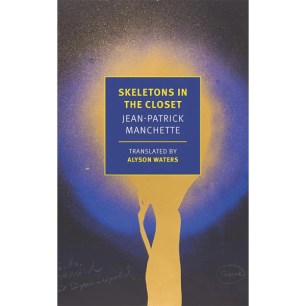
Originally titled Que d’os! – literally meaning “So many bones!” – and published in 1976, it’s scheduled for release this December and has been translated by Alyson Waters, who also translated Manchette’s Morgue pleine (No Room at the Morgue).
Skeletons in the Closet features the hermetic, alcoholic Parisian private eye Eugène Trapon, the only fictional creation of Manchette’s to appear in more than one novel.
Trapon is obviously an heir to Dashiell Hammett’s Sam Spade, but Manchette’s novels are only superficially hard-boiled. At their heart, the other eight novels of Manchette’s – all of which I’ve not so much read as devoured – are melancholic treatises on the demise of radical politics at the end of the 20th century. Tragic, uncompromising and irresistible.
– Ali Alizadeh is a Senior Lecturer in Literary Studies and Creative Writing at Monash University.
Daisy and Woolf by Michelle Cahill and Between You and Me by Joanna Horton
Some books can’t be digested at once, so this summer I will be returning to Daisy and Woolf by Goan-Anglo-Indian poet and author, Michelle Cahill. A dual narrative that shifts between the perspectives of author Mina, and Daisy Simmons, the cruelly marginalised Eurasian character from Virginia Woolf’s Mrs Dalloway about whom Mina is writing, the novel is both gripping and profound.
As Mina gives Daisy the story she deserves, she explores her own sense of self as a woman and writer of mixed ancestry, while highlighting the structural racism inherent to the literary canon. A brave and beautiful book.
Also on my list is Between You and Me by Brisbane author Joanna Horton. A moving exploration of female friendship complicated by a troubling love triangle, this promises to offer a compelling alternative to the pervasive Great White Hot Messes of women’s fiction.
– Liz Evans is an author, journalist, and Associate Lecturer in English and Writing at University of Tasmania.
The science fiction of Samuel R. Delany and Babel, or the Necessity of Violence by R.F. Kuang
This summer, I’m aiming to dive deeper into the works of Samuel R. Delany, who was memorably profiled in the New Yorker earlier this year. Delany is most commonly associated with the New Wave science fiction movement of the 60s and 70s, but his writing spans a fascinating range of genres and subjects.
I’m hoping to finish reading his Nevèrÿon sequence, a series of linked sword-and-sorcery novellas. In the Nevèrÿon stories, Delany details a fantasy world’s gradual shift from a barter to a currency-based economy, and the new problems and possibilities this gives rise to. I also want to get to his classic space opera Nova and possibly his surreal opus Dhalgren, if I am feeling ambitious.
I’ve also wanted to read Babel, or the Necessity of Violence by R.F. Kuang ever since it came out last year, so maybe this summer …
– Julian Novitz is a Senior Lecturer in Writing, Department of Media and Communication at Swinburne University of Technology.![]()
Jodi McAlister, Senior Lecturer in Writing, Literature and Culture, Deakin University; Ali Alizadeh, Senior Lecturer in Literary Studies and Creative Writing, Monash University; Beth Driscoll, Associate Professor in Publishing and Communications, The University of Melbourne; Julian Novitz, Senior Lecturer, Writing, Department of Media and Communication, Swinburne University of Technology; Kevin John Brophy, Emeritus Professor of Creative Writing, The University of Melbourne, and Liz Evans, Writer, author, journalist, Associate Lecturer in English & Writing, University of Tasmania
This article is republished from The Conversation under a Creative Commons license. Read the original article.
